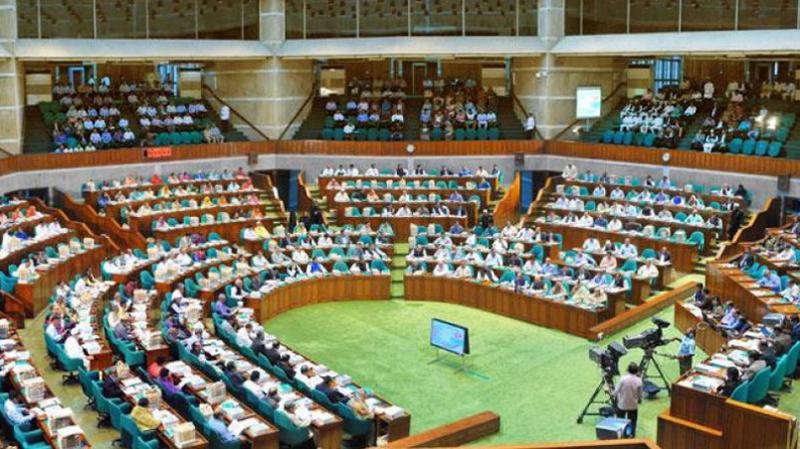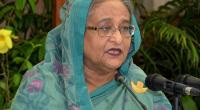 The parliamentary standing committee on post, telecoms and ICT ministry has placed its report on the Digital Security Act 2018 without addressing the issues in at least eight clauses of the law raised by representatives from the media.
The parliamentary standing committee on post, telecoms and ICT ministry has placed its report on the Digital Security Act 2018 without addressing the issues in at least eight clauses of the law raised by representatives from the media.
It, however, made some changes in the proposed law.
“Necessary amendments based on inputs from representatives of the media have been made. The bill once passed will play a significant role for the Digital Bangladesh campaign,” the panel’s Chairman Imran Ahmed MP said while placing their report before the parliament on Monday.
On Sunday, the Editors’ Council said it was disappointed and shocked at the parliamentary panel’s report, the findings of which were reported in the media the previous day.
It said the report "totally ignored" the concerns expressed by journalists and media organisations.
On Jan 29, the Cabinet gave the green light to the new law’s draft and on Apr 9, it was tabled in the House by Telecoms and ICT Minister Mustafa Jabbar, when the Standing Committee was given a month to scrutinise it.
The proposed law, however, has drawn criticisms with journalists and rights activists find it will effectively stifle the media as well as prevent investigative reporting.
The proposed Digital Security Act will stifle the media as several of its will effectively prevent investigative reporting, says the Editors’ Council.
On May 22, the Standing Committee invited media representatives and three ministers — Law Minister Anisul Huq, Telecoms and ICT Minister Mustafa Jabbar and State Minister for ICT Zunaid Ahmed Palak in a meeting, after which the government said the concerned provisions will be revised.
The proposed Digital Security Act 2018 incorporates issues addressed in the controversial Section 57 of the ICT Act in an elaborated way.
Section 57 criminalises ‘publication of fake, obscene or defaming information in electronic form’.
An offence under this provision of the Act is punishable by at least seven years to a maximum of 14 years’ imprisonment. Fine can be as much as Tk 10 million.
Rights defenders have described Section 57 as ‘draconian’ saying the law-enforcers misuse it.
The new law addresses the same issues ‘in detail’, Cabinet Secretary Md Shafiul Alam had said after the government cleared the draft earlier this year.
Journalists and rights activists say the new law will severely hamper investigative reporting, especially, Section 32, which defines storing and transferring confidential government data as well as aiding and abetting such efforts as espionage.
It keeps provisions of up to 14 years in jail and fines as high as Tk 2.5 million for such offences, but does not clearly define confidential data.
 National
National
31181 hour(s) 43 minute(s) ago ;
Midnight 12:37 ; Wednesday ; May 08, 2024
Report on Digital Security bill placed before House
Send
Bangla Tribune Report
Published : 21:43, Sep 17, 2018 | Updated : 21:46, Sep 17, 2018
Published : 21:43, Sep 17, 2018 | Updated : 21:46, Sep 17, 2018
0 ...0 ...
/ehs/zmi/
Topics: Top Stories
- KOICA donates medical supplies to BSMMU
- 5 more flights to take back British nationals to London
- Covid19: Rajarbagh, Mohammadpur worst affected
- Momen joins UN solidarity song over COVID-19 combat
- Covid-19: OIC to hold special meeting
- WFP begins food distribution in Cox’s Bazar
- WFP begins food distribution in Cox’s Bazar
- 290 return home to Australia
- Third charter flight for US citizens to return home
- Dhaka proposes to postpone D8 Summit
Unauthorized use of news, image, information, etc published by Bangla Tribune is punishable by copyright law. Appropriate legal steps will be taken by the management against any person or body that infringes those laws.
Bangla Tribune is one of the most revered online newspapers in Bangladesh, due to its reputation of neutral coverage and incisive analysis.
F R Tower, 8/C Panthapath, Shukrabad, Dhaka-1207 | Phone: 58151324; 58151326, Fax: 58151329 | Mob: 01730794527, 01730794528


